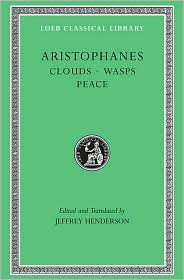Wednesday, I started reading a later book of hers, The House By the Sea, which recounts the period from November 13, 1974 to August 17, 1976, after she left Nelson and moved to the Maine seacoast.
It is interesting that I started reading it in this week, when Mahmoud Abbas goes to the United Nations to request full membership in that body for a Palestinian State, for November 13, 1974 is the date of Yasser Arafat's famous address to the U.N. General Assembly. This goes unrecorded in Sarton's journal on the day it occurs, but she brings it up in her December 5th entry. This excerpt starts with Sarton and then quotes at length from an article in the New Statesman, which apparently occasioned the reflection:
I have a leaden feeling when I wake up and need to shake myself awake like a dog. But the lead is in my mind, of course. It is not only the coming on of winter, but the coming on of old age that I shore up against these days. At all ages we are learning how precarious life is, as it slowly penetrates consciousness that we live in a dying civilization. It was dreadfully borne in on me when the UN allowed Arafat, a holster showing under his shirt, to speak, and so sanctified the most brutal terrorist organization in the world. At that moment something went out of us all in the West. Trust that the generality of nations would stand, at least theoretically, for justice under law? "The Age of Terror," Paul Johnson calls this one in the New Statesman (November 29) Now the truth is out after The Age of Anxiety when we felt vaguely uncomfortable and alarmed. Now the the truth is out—there is no court of higher appeal, no public generality to express revolt. We are all in the same boat and the boat is commanded by thugs. Johnson says,Now there's plenty here to disagree with. The Whig View of History for a start, which plays out in the idea that the West doesn't have an ideal to propose—a consequence of believing Whiggishly that the ideals of the past have been surpassed and discredited. But there's plently to reflect on profitably as well, I think on the day that the Palestinian Leader again goes before the U.N. General Assembly.
"Here we come to the essence of the argument. No state throughout history has had completely clean hands. What marks the progress of civilization is the systematic recognition of laws, the identification and punishment of crime, and the reprobation of the offender. A civilized society is one which sees evil in itself and provides means to eliminate it, where the voice of conscience is active. the horrific record of Britain's indiscriminate bombing of Germany is in part redeemed by the protests of Bishop bell of Chichester. The brutalization of Vietnam by the United States is balanced by the critical millions who eventually brought it to an end. We need not despair at the devastating events of our times so long as we retain the ability to distinguish between right and wrong, between law and disorder, between justice and crime, and proclaim these distinctions from the roof-tops.It is possible, I suppose that we are returning to a Dark Age. What is frightening is that violence is not only represented by nations, but everywhere walks among us freely. One might even make a distinction between terrorism for an ideal or a dream such as the PLO and that which we condone here at home, violence for no reason, as a game or a way of snatching a few dollars. Are we in the West on the way out partly because we have provided our people with almost everything except an ideal.
"The tragedy of the U.N. is that the distinctions have been first blurred, then wholly abandoned; and that its judgements are now delivered not according to any recognized set of principles, however inadequate, but solely in response to the pressures of political and racial groupings. Racialism is condemned in South Africa but applauded in Uganda; and the fruits of aggression are denied or blessed according to the race and political leanings of those to whom they accrue. Thus the UN has become a kind of kangaroo court; far from protecting international order, it undermines it. Not even the wretched League of Nations gave a welcome and a platform to Hitler."





